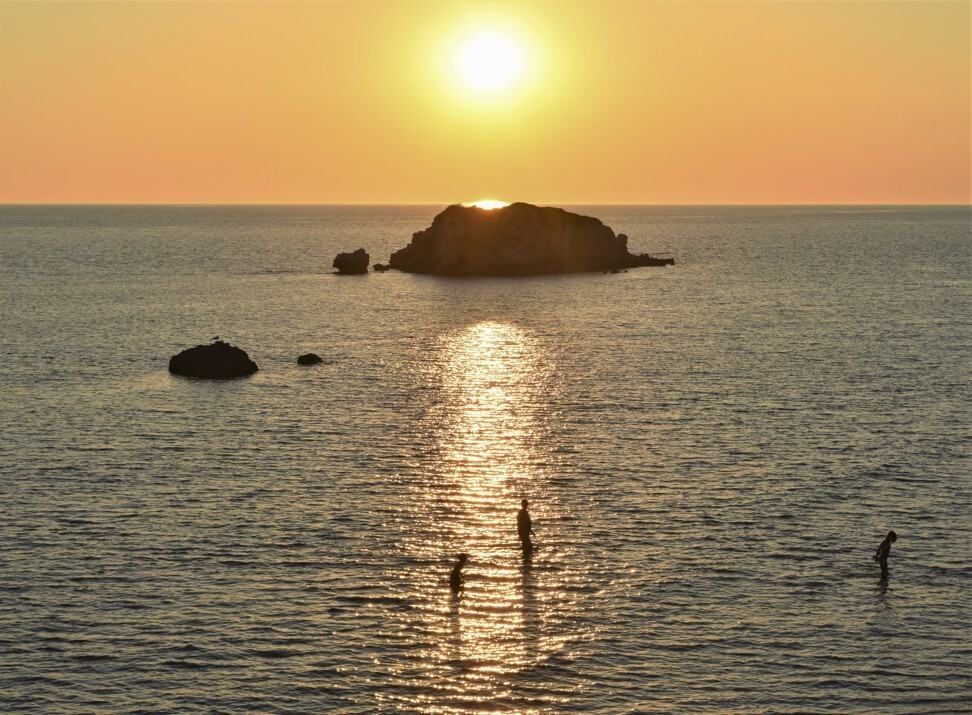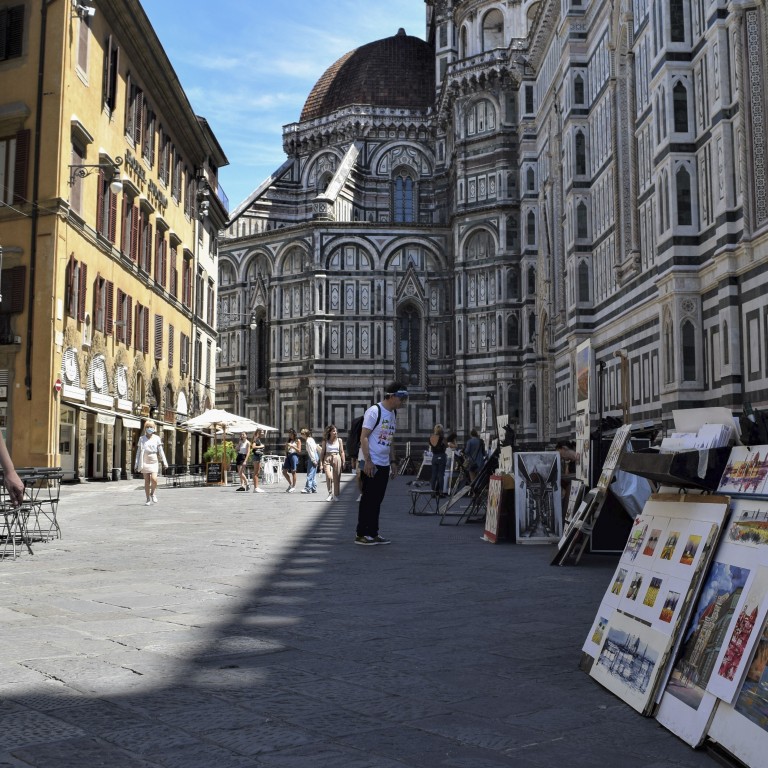
A family road trip through Covid-19-hit Europe – one-off experience or a taste of things to come?
- With flights between Britain and Greece suspended, the author drove across the continent to reach the family holiday home in Corfu
- The journey offered a rare chance to visit Florence, Pompeii and the Amalfi Coast at the height of summer but without the crowds
“My goodness. Are you really tourists from England?” asks a middle-aged Italian woman with a theatrical throw of her arms in the emptiness of one of the city’s best-loved pizzerias.
As we nod our nervous confirmation – fearing this may be a prelude to a dressing down for having come to Italy in the middle of a pandemic – she breaks into a broad grin and declares: “Then welcome to Florence. We must roll out the red carpet for you.”
Like every scene in this strangest of summers, our reception at a deserted restaurant on an early July evening is a unique and possibly never-to-be repeated experience on a continent where – for most citizens – the sight of British tourists waddling into view is usually as welcome as an outbreak of bubonic plague. Or Covid-19.
Only last July, Venice was considering limiting tourist numbers as the city and its gondolas groaned beneath the weight – and girth – of international arrivals, while the streets of Florence sweltered in insufferable heat as more than a million foreign visitors thronged its narrow streets and jostled shoulder to shoulder across the Ponte Vecchio bridge.
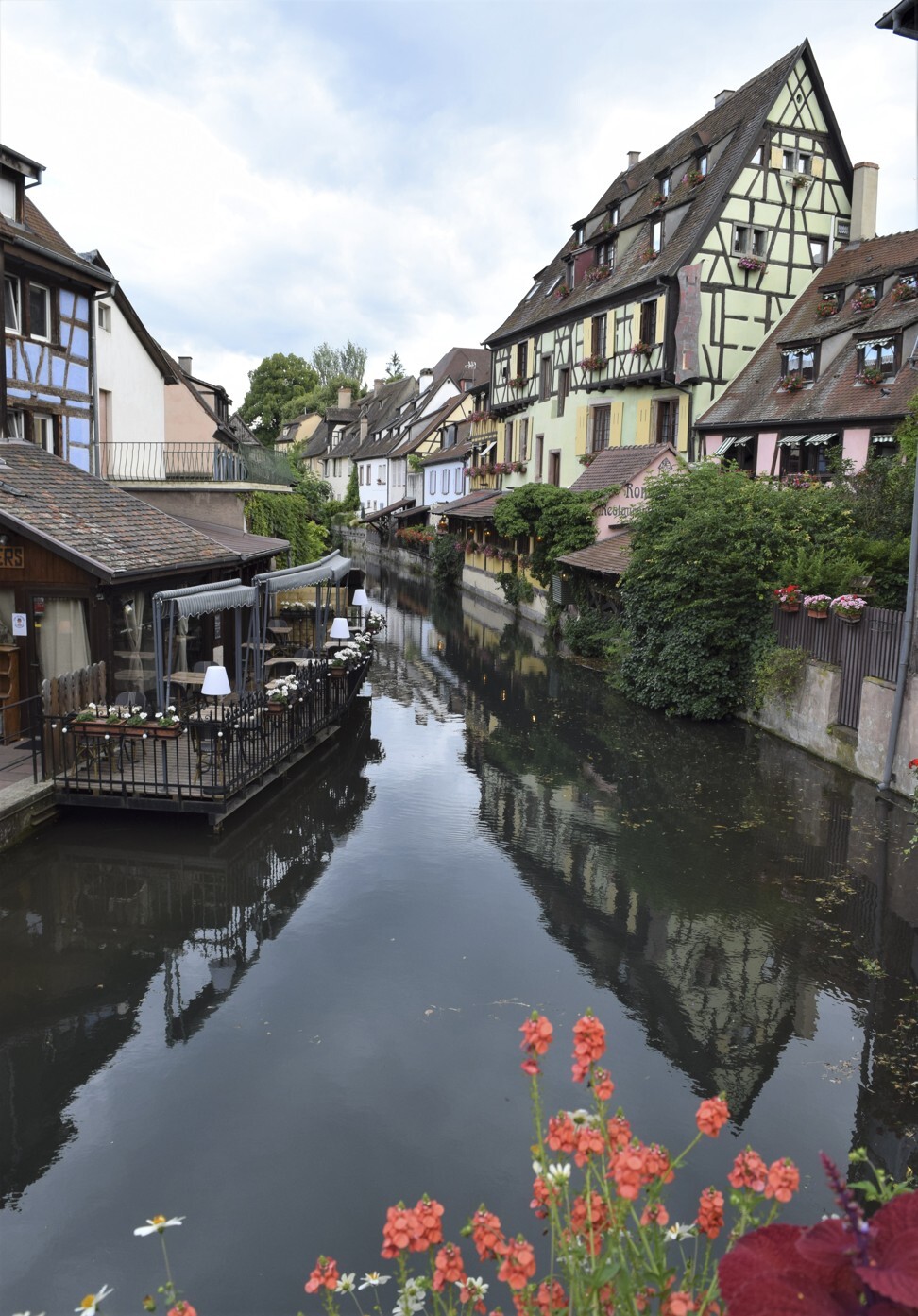
Then everything changed. Italy went into lockdown, followed by countries across Europe. By the time a tentative reopening of borders began, in late June, the mood of everyone in a world decimated by death and infection had been utterly transformed. For a summer, at least.
Despite the openings, most people remained in self-imposed lockdown, some fearful of leaving home let alone boarding a plane. And as each country set their own, often contradictory, rules on testing and quarantine, an impenetrable fog of confusion descended over which countries were open and where tourists could or could not travel.
It was against this uneasy background that, with flights between Britain and Greece suspended, we bought a 17-year-old Suzuki and set out from Lancashire on a 2,735km road trip through France and Italy to the holiday home on the Greek island of Corfu where we have spent every summer since 2004.
Our decision to travel was not universally popular. Patriotic friends urged us to take our 2020 holidays at home and support the British economy as they packed their bags for weekend breaks in Torquay or Skegness. Meanwhile, in online forums, Corfu expatriates declared it reckless to travel to a virus-free island from Britain. But four months of lockdown had left us stir-crazy and impervious to sensible advice.
Clear motorways, bargain Airbnb apartments and empty restaurants greeted us at every point of the eight-day journey through a weirdly altered European landscape. There was not a single coronavirus test or police check anywhere from the north of England to southeast Italy, where we boarded a ferry to Corfu.
For good or bad, this was a once-in-a-lifetime opportunity to travel to some of Europe’s most popular cities at the height of summer and pretty much have them to ourselves – although as the virus continued to wreak havoc through the summer, we began to realise it might be a glimpse of a bleak future for international travel.
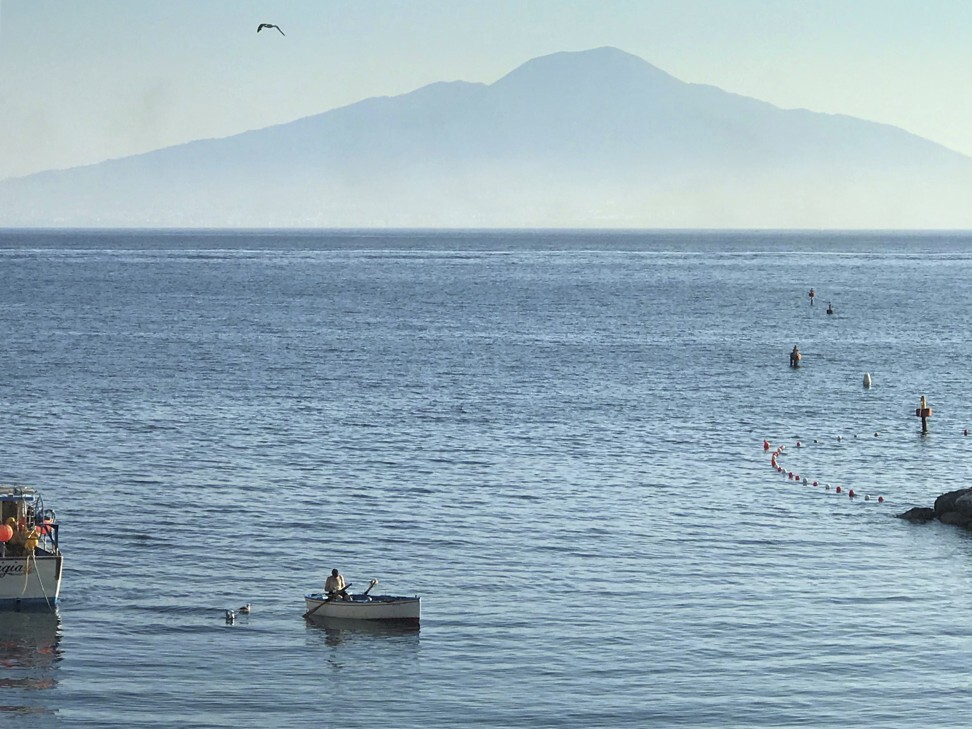
If we needed any evidence of our rarity value, it came on our first overnight stop after a 16-hour drive and Channel Tunnel crossing to the picture-postcard town of Colmar, on the border between France and Germany. We got up the next morning to find the GB sticker had been swiped from the back of our car. That was the height of any hostility or ill will we encountered.
Shopkeepers and restaurant owners were genuinely happy to see foreigners – customers of any description, for that matter – and had time on their hands to chat. Inevitably, though, there was only ever one topic of conversation.
“We can survive this summer but if [the coronavirus] comes back next year, we will be finished,” said a restaurant owner in Colmar.
Florence, shimmering majestically in the midsummer heat, was extraordinary in its emptiness and reverberated with a sense of continuing shell shock at the catastrophe that gripped Italy and made it the initial epicentre of the European outbreak.
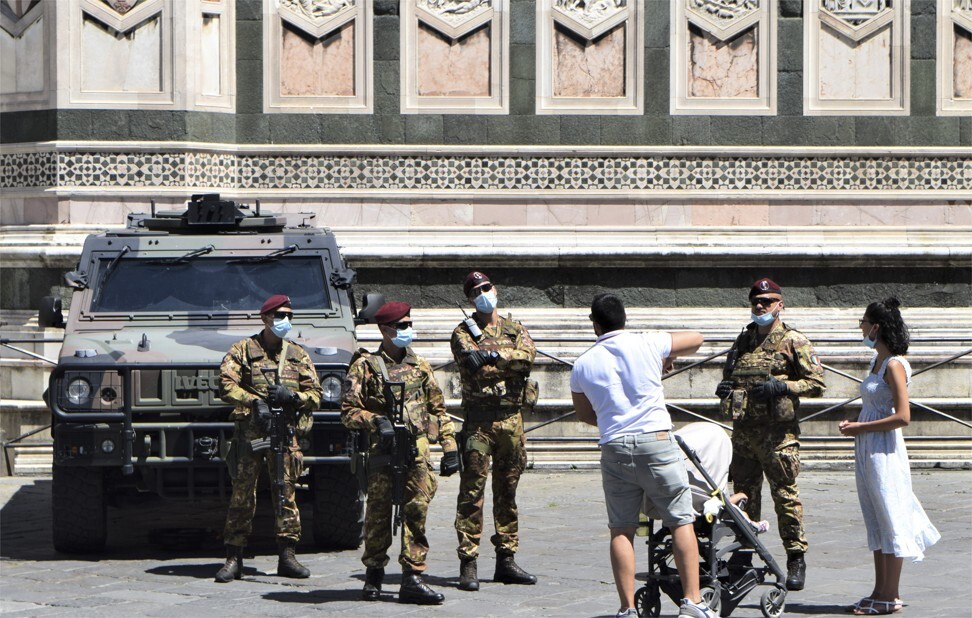
Masked soldiers outside the Duomo di Firenze almost outnumbered early morning visitors, and after an hour wandering through the centre, we realised a remarkable thing: there were so few tourists, we kept seeing the same people again and again, and were soon on smiling and nodding terms.
“There is no summer this year,” one of them moaned. “There is nothing for us to look forward to except the end of the virus and next summer.”
In contrast to Italy, Greece is one of Europe’s least affected countries. We reached Bari only a few days after sailings between the Italian port and the Greek island of Corfu had resumed for the first time in months: a strategy that had kept Corfu virus-free.
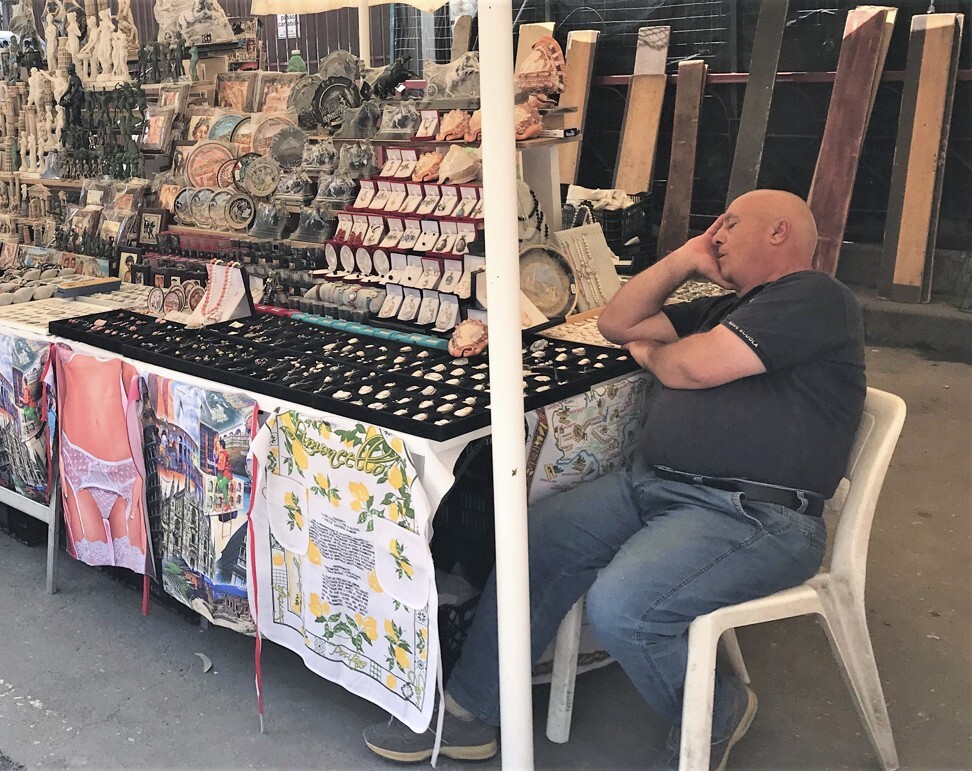
Every passenger had to register their contact details online 48 hours before sailing and, as a three-quarters-empty ferry docked in Corfu Town after a 10-hour overnight sailing, almost every person on board – including the three of us – was tested in a makeshift facility before being told to self-isolate for 24 hours.
Isolated for months and immune from any real-life experience of the disease, many people on Corfu, including one of our neighbours, still believed the coronavirus was a hoax. “It’s not real, it’s a plot to make everyone take the vaccine,” she told us authoritatively.
That illusion was about to be rudely shattered. A week after our arrival, direct flights from Britain and the rest of Europe were finally allowed to land and tens of thousands of people from countries with large-scale coronavirus outbreaks poured into an airport with the capacity to test only a random handful on arrival. A bizarre and colourful journey that had taken us more than a week was suddenly transformed back into a routine three-hour hop as Ryanair and easyJet planes began to appear in the empty Aegean skies.
“Of course, the tourists will bring the virus to the island, but what choice do we have?” asked Ilias, owner of a clifftop taverna overlooking the idyllic southwest coast. “We can survive the coronavirus, but we cannot survive with no income.”
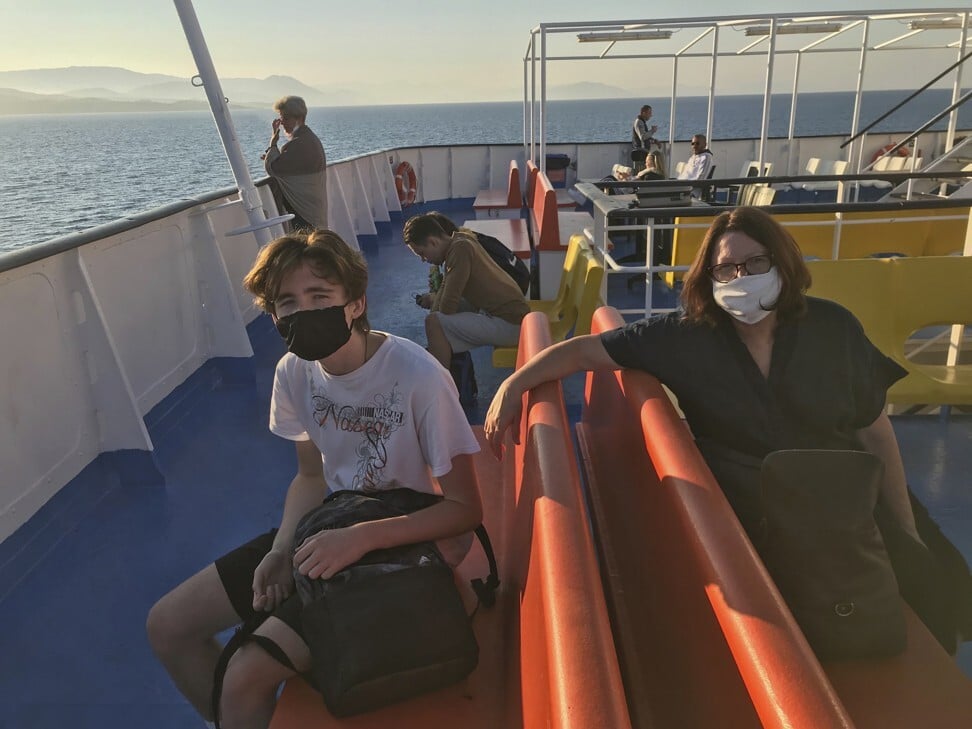
As the summer burns on and this corner of the Mediterranean continues to put on a facade of normality to salvage its tourism-dependent economy, tensions get closer to the surface by the day. A school friend of our son, flown in from Manchester, sneezed into his elbow as he passed a moored tour boat, triggering a volley of Greek abuse from the skipper.
Moods may darken as the weeks pass, borders slam shut again, and a second wave of the disease engulfs Europe, maybe proving right those who called our expedition irresponsible. But the reality is, no one knows for sure what lies ahead.
One thing is for certain, however. The direction and ferocity of the pandemic will continue to profoundly change the way Europeans live and work … and with it, the attitude of people in destinations that rely on tourism to the summer strangers on their shores.
